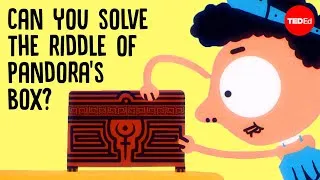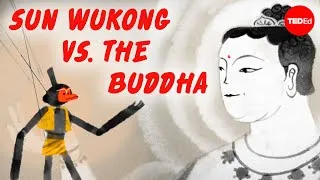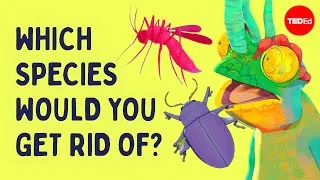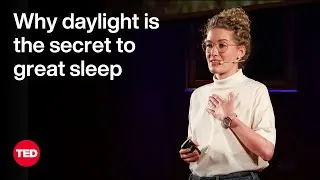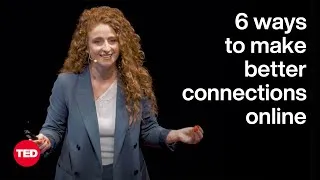請雙擊下方英文字幕播放視頻。
譯者: Lilian Chiu
審譯者: Helen Chang
00:07
Watching a kitten fumbling around,
0
7462
2961
看著一隻小貓很萌地玩耍,
00:10
it might feel as if you’ve never
encountered anything
1
10840
3170
感覺可能就像是你這輩子
00:14
so devastatingly adorable
in your mortal life.
2
14010
4755
沒遇到這麼夭壽可愛的東西。
00:19
You may want to pet its soft fur
and kiss its tiny head.
3
19432
5047
你可能會想摸摸牠那軟軟的毛,
親親牠那小小的頭。
00:25
But you may also feel the conflicting
urge to squeeze
4
25063
6506
但你可能也會有種很衝突的衝動,
讓你想要擠捏或壓扁這隻小貓,
00:31
or smush the kitten,
5
31569
1919
00:33
maybe even stuff it in your mouth.
6
33488
2502
或甚至把牠塞到你的嘴裡。
00:36
However, you don’t.
7
36616
1960
然而,你不會這麼做。
00:38
And you might be appalled by yourself.
8
38785
2085
你可能會被你的念頭給嚇壞。
00:40
But this urge, which psychologists
call “cute aggression,”
9
40870
4129
這種衝動被心理學家稱為
「可愛侵略性」,
00:45
is a surprisingly common one estimated
to affect about half of all adults.
10
45541
5965
普遍程度十分驚人,
有大約一半的成人會受它影響。
00:52
To better understand this
peculiar phenomenon,
11
52298
2795
為了更了解這種奇怪的現象,
00:55
let's start with what cuteness is.
12
55093
2627
咱們首先來談談「可愛」是什麼。
00:58
In 1943, one scientist created
a baby schema
13
58304
5422
1943 年,
一名科學家創造出了一種寶寶圖式,
01:03
that identified key features
associated with cuteness,
14
63726
3253
找出和可愛相關的關鍵特徵,如:
01:06
like plump cheeks, large eyes,
and short limbs.
15
66979
4171
胖嘟嘟的臉頰、大眼睛,及短肢體。
01:11
These characteristics,
associated with many young animals,
16
71526
3837
許多年幼的動物也有這些特徵,
01:15
were placed in opposition with those
perceived as less cute.
17
75363
4463
它們被拿來和被認為
不那麼可愛的特徵做對比。
01:20
Decades of study have since indicated
that this baby schema reliably tracks
18
80326
5130
之後數十年的研究都指出,
這種寶寶圖式能很可靠地追蹤出
01:25
with how people perceive cuteness.
19
85456
2419
人們如何認定什麼是可愛。
01:28
When study participants see images
containing more features
20
88000
3879
若研究受試者看的圖像
具有較多寶寶圖式
所指明的可愛特徵,
01:31
that the baby schema pinpoints as cute,
21
91879
2419
01:34
they tend to look at them
longer and more often.
22
94298
3379
他們傾向會比較常看
這些圖像,且看比較久。
01:38
And the photos appear
to stimulate brain regions
23
98386
2627
而這些照片會刺激到的大腦區域
01:41
associated with emotion and reward.
24
101013
3504
很顯然和情緒及獎勵有關。
01:45
Cuteness is also thought
to influence behavior.
25
105351
3378
「可愛」也被認為會影響行為。
01:49
In a 2009 study, participants performed
better at the game Operation—
26
109063
4755
在一項 2009 年的研究中,
受試者玩手術遊戲
表現較佳的時候——
01:53
which demands precise, careful movements—
when shown cute images beforehand.
27
113818
5797
這種遊戲需要精確、謹慎的動作——
都是預先看過可愛影像的時候。
02:00
The results of another study indicated
that people use recycling bins more
28
120158
4629
另一項研究的結果顯示,如果
想讓大家更常用回收垃圾筒,
02:04
when they have cute images on them.
29
124787
2378
就要在筒子上加上可愛的圖像。
02:07
And the fact that cuteness hijacks
our emotions
30
127790
2836
而可愛會劫持我們的情緒這個事實,
02:10
is certainly not lost
on authorities and advertisers.
31
130626
4505
當權機關和廣告商肯定都會運用。
02:15
But why does cuteness
have this hold on us?
32
135548
3211
但為什麼可愛對我們有這種支配力?
02:18
It's nearly impossible to know for sure,
33
138968
1919
幾乎不可能有肯定的答案,
02:20
but one theory is that cute things simply
make us want to nurture them.
34
140887
5088
但有一個理論是:可愛的東西
就會讓我們想要養育它們。
02:26
Because human babies are relatively
helpless on their own,
35
146475
3504
因為人類的寶寶相對
比較無助,不能靠自己,
02:29
it’s hypothesized that evolution favored
infants who were perceived as cute
36
149979
4671
這個理論便假設,演化
會偏愛被認為可愛的嬰兒,
02:34
and inspired more care and interaction.
37
154775
2962
並會帶來更多照顧和互動。
02:38
And, being acutely sensitive to cuteness,
38
158571
3462
因為我們對可愛的敏感度很高,
02:42
we're tuned into similar features
in other species.
39
162033
3253
我們就會連結到
其他物種的類似特徵。
02:45
In fact, as we domesticated animals,
their appearances tended to change too.
40
165578
5505
事實上,當我們馴養動物時,
牠們的外觀也傾向會改變。
02:51
Some scientists have noted a phenomenon
called “domestication syndrome,”
41
171667
4713
有些科學家注意到了一種
稱為「馴化症候群」的現象,
02:56
where certain animals appear to have
gradually adopted more juvenile features
42
176631
4963
當某些動物變得更溫馴,
牠們顯然也會漸漸
03:01
as they became more docile.
43
181594
2252
出現更幼年的特徵。
03:04
One theory is that these
physical changes are regulated
44
184972
3462
有個理論是,調節這些身體改變的
03:08
by an embryonic structure
called the neural crest.
45
188434
3462
是一種胎兒時期的結構,
叫做神經脊。
03:12
It helps determine how some
of a developing embryo’s cells
46
192271
3712
它會協助決定一些
在成長中的胚胎細胞
03:15
differentiate and where they go.
47
195983
2628
要如何分化和到那些部位。
03:18
Delaying or inhibiting the arrival of
these cells in certain areas of the body
48
198861
4338
延遲或抑制這些細胞
抵達身體的某些區域
03:23
can result in an underdevelopment
of the pituitary and adrenal glands,
49
203199
5088
可能會造成腦垂體
和腎上腺發育不足,
03:28
which govern fear and aggression.
50
208287
2378
它們負責掌管恐懼和侵略性,
03:31
It can also lead
to physical characteristics
51
211123
3003
還可能造成身體上的特徵,如:
03:34
like floppier ears, shorter snouts,
and smaller jaws.
52
214126
4755
下垂的耳朵、較短的鼻子,
以及較小的下顎。
03:39
This is one idea of how selecting
for behavioral characteristics
53
219507
4254
這是其中一個想法,說明
為何挑選友善之類的行為特徵
03:43
like friendliness, may also select
for more juvenile, cuter physical traits.
54
223761
6423
可能也等同於挑選比較年幼、
比較可愛的身體特徵。
03:50
Basically, as humans bred
and domesticated docile dogs,
55
230935
4212
基本上,隨著人類
繁殖和馴養出溫馴的狗,
03:55
we seem to have made some breeds
look more like babies.
56
235439
4421
我們似乎會讓一些品種
看起來更像嬰兒。
04:00
Some scientists theorize that we may
have even domesticated ourselves.
57
240820
5464
有些科學家甚至推理,我們
可能已經馴化了我們自己。
04:06
The thinking here is that
as ancient humans
58
246701
2586
他們的想法是,當古時的人類
04:09
formed larger, more cooperative groups,
59
249287
2711
組成更大、更團結合作的團體,
04:11
they selected for friendlier individuals.
60
251998
2919
他們也會挑選比較友善的人。
04:15
This may have then led to some
of the physical characteristics
61
255084
3045
這可能進而導致我們
和我們在演化上的近親
04:18
that distinguish us from our closest
evolutionary cousins,
62
258129
3503
在一些身體特徵上有所區別,
04:21
like smaller, rounder skulls
and subtler brow ridges.
63
261632
4296
比如我們的顱骨比較小、比較圓,
以及眉脊比較精細。
04:26
But if cuteness is related to nurturing
and decreased aggression,
64
266762
5714
但,如果可愛和養育
以及侵略性減低有關,
04:32
why would anyone ever want
to squeeze or bite cute things?
65
272685
4963
為什麼會有人想要
擠捏或啃咬可愛的東西?
04:38
Well, cute aggression
is importantly not linked
66
278232
4088
嗯,很重要的是,可愛侵略性
和想要造成傷害的意圖無關。
04:42
to the actual intention to do harm.
67
282320
2419
04:44
Instead, it seems to result
from emotional overload.
68
284822
4254
它反而似乎是情緒過載造成的結果。
04:49
Some scientists think that cute things
elicit such positive emotions
69
289910
4755
有些科學家認為可愛的東西
會引起這種正面的情緒,
04:54
from certain people that the experience
becomes overwhelming.
70
294665
4296
有些人會覺得這樣的感受
變得讓他們難以承受。
04:59
They hypothesize that slightly aggressive,
discordant thoughts
71
299420
4546
他們假設稍微侵略性、不協調的想法
05:03
are the brain’s way of putting the brakes
on and regulating those intense feelings—
72
303966
5381
是大腦踩煞車以及管理
這些強烈感覺的方式——
05:09
not getting you to actually eat a kitten.
73
309722
3378
不是真的要讓你去吃一隻小貓。
05:13
Cuteness can come off as a frivolous,
innocent quality,
74
313934
3629
可愛有可能是以一種輕浮、
無辜的特質呈現出來,
05:17
but it wields immense,
consequential power.
75
317813
3671
但它能產生巨大、重大的力量。
05:22
Not to be aggressive,
but cuteness kind of runs the world.
76
322109
5881
沒有任何侵略性的意思,
但「可愛」可以說是主宰著世界。
New videos
關於本網站
本網站將向您介紹對學習英語有用的 YouTube 視頻。 您將看到來自世界各地的一流教師教授的英語課程。 雙擊每個視頻頁面上顯示的英文字幕,從那裡播放視頻。 字幕與視頻播放同步滾動。 如果您有任何意見或要求,請使用此聯繫表與我們聯繫。


